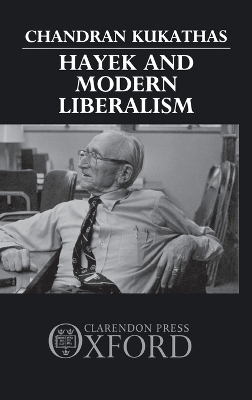Clarendon Paperbacks
1 total work
In the history of modern liberal political thought the work of F. A. Hayek stands out as one of the most significant contributions to liberal theory since J. S. Mill. This book critically examines the nature and coherence of Hayek's defence of liberal principles, and tries both to identify its weaknesses and to show why it makes such an important contribution to contemporary political theory. Chandran Kukathas argues that Hayek's defence of liberalism is unsuccessful
because it rests on presuppositions which are philosophically incompatible. The unresolved dilemma of Hayek's political philosophy is how to mount a systematic defence of liberalism if one emphasizes the limited capacity of reason. However, he believes that Hayek's social philosophy offers us a
significant theory of the nature of social processes, and is therefore an important account of how this must constrain our choice of political principles. For this reason, Hayek's work is worthy of attention both by supporters and critics of liberalism.
because it rests on presuppositions which are philosophically incompatible. The unresolved dilemma of Hayek's political philosophy is how to mount a systematic defence of liberalism if one emphasizes the limited capacity of reason. However, he believes that Hayek's social philosophy offers us a
significant theory of the nature of social processes, and is therefore an important account of how this must constrain our choice of political principles. For this reason, Hayek's work is worthy of attention both by supporters and critics of liberalism.
